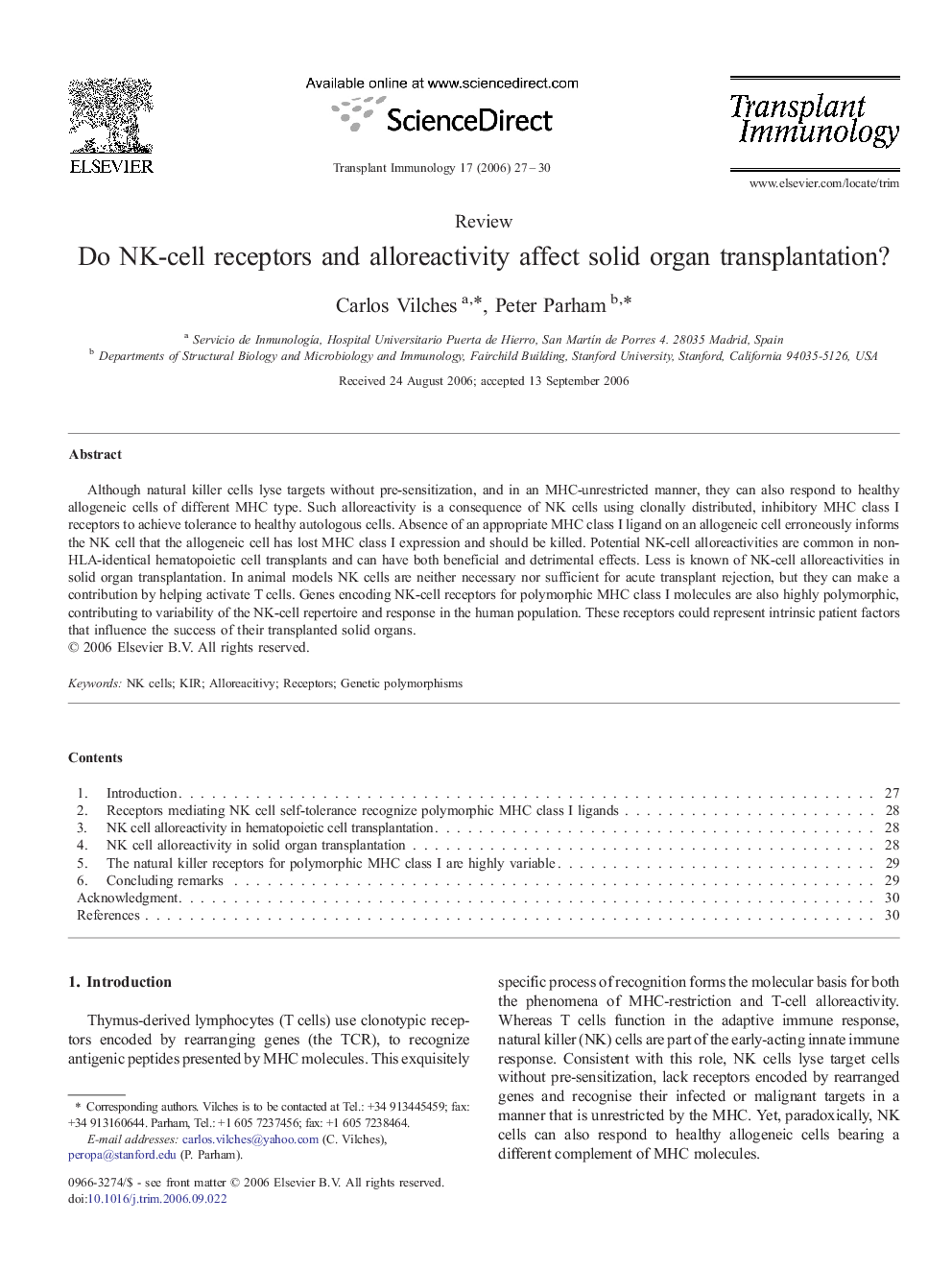| کد مقاله | کد نشریه | سال انتشار | مقاله انگلیسی | نسخه تمام متن |
|---|---|---|---|---|
| 3392651 | 1221232 | 2006 | 4 صفحه PDF | دانلود رایگان |

Although natural killer cells lyse targets without pre-sensitization, and in an MHC-unrestricted manner, they can also respond to healthy allogeneic cells of different MHC type. Such alloreactivity is a consequence of NK cells using clonally distributed, inhibitory MHC class I receptors to achieve tolerance to healthy autologous cells. Absence of an appropriate MHC class I ligand on an allogeneic cell erroneously informs the NK cell that the allogeneic cell has lost MHC class I expression and should be killed. Potential NK-cell alloreactivities are common in non-HLA-identical hematopoietic cell transplants and can have both beneficial and detrimental effects. Less is known of NK-cell alloreactivities in solid organ transplantation. In animal models NK cells are neither necessary nor sufficient for acute transplant rejection, but they can make a contribution by helping activate T cells. Genes encoding NK-cell receptors for polymorphic MHC class I molecules are also highly polymorphic, contributing to variability of the NK-cell repertoire and response in the human population. These receptors could represent intrinsic patient factors that influence the success of their transplanted solid organs.
Journal: Transplant Immunology - Volume 17, Issue 1, December 2006, Pages 27–30